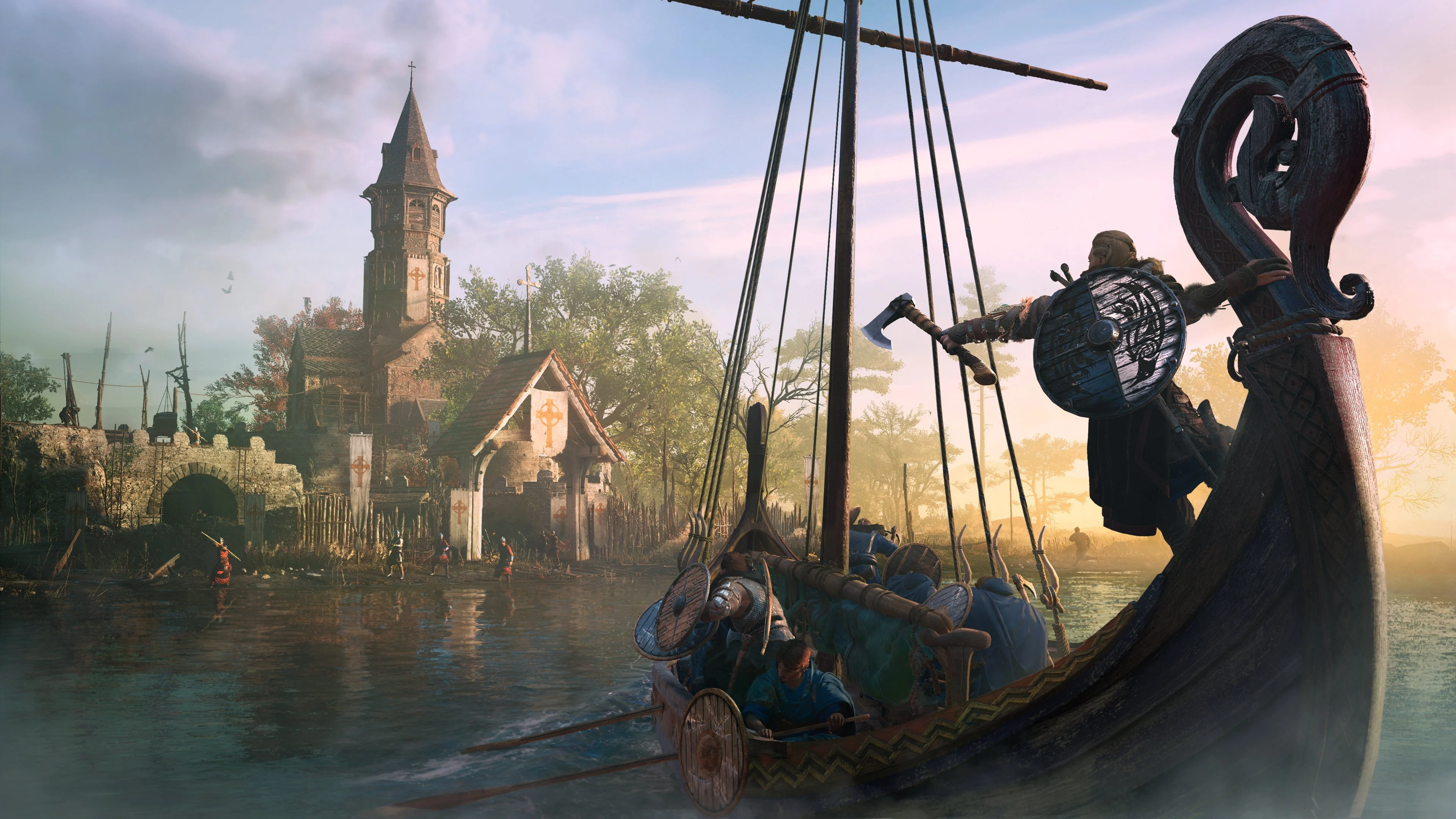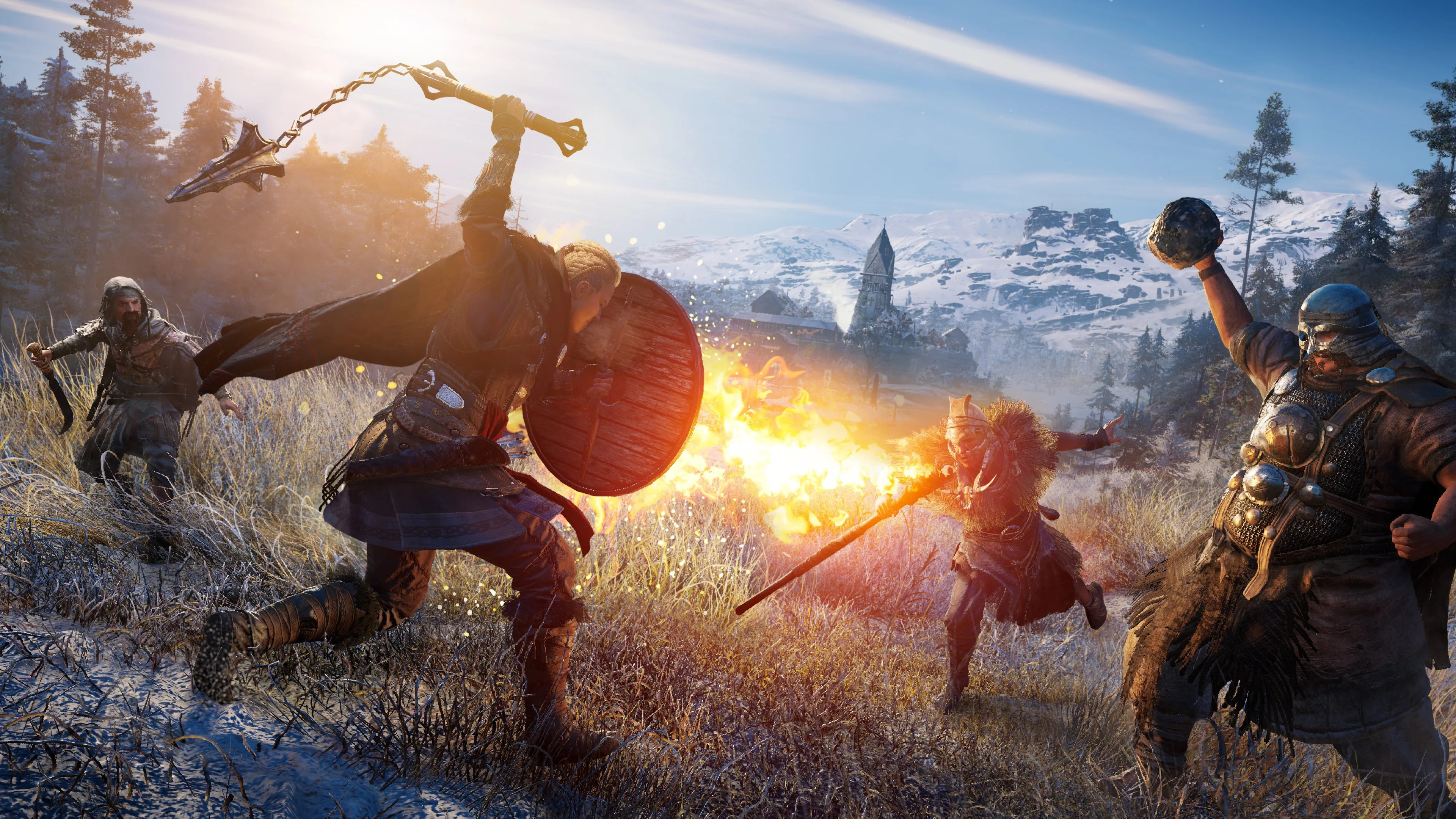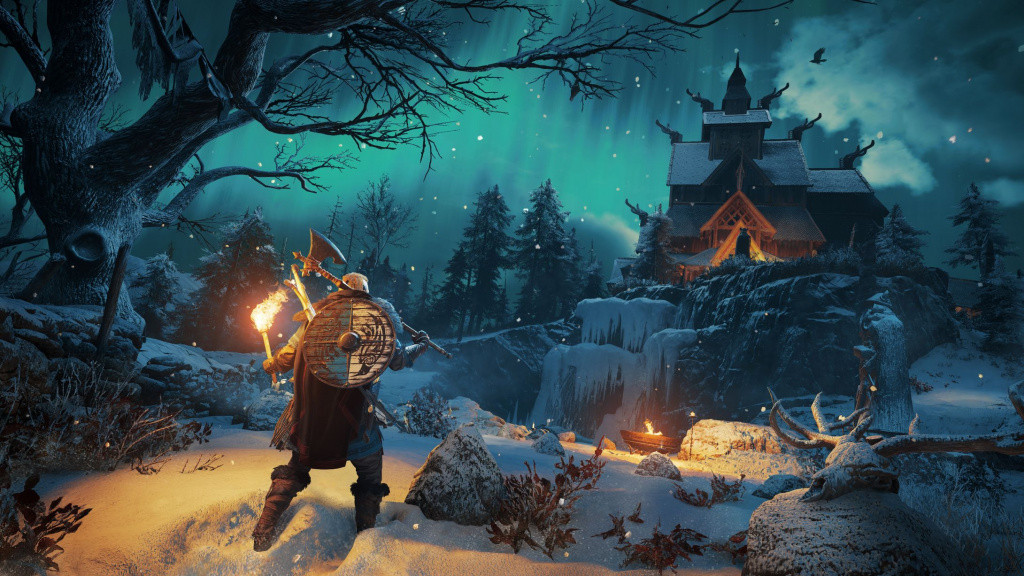
Almost every corner of Assassin’s Creed Valhalla echoes other games. The combat shoots for Bloodborne-lite, the open world falls between Skyrim and The Witcher, the English eccentricities in side quests are reminiscent of Fable, and even the menu screams Destiny. It comes together for a structurally impressive experience, although you may wonder how much Assassin’s Creed is actually left in Assassin’s Creed.
2017’s Assassin’s Creed Origins is regarded as the moment the series pushed beyond stealth-based kills and parkour, but in reality the franchises’ evolution has been more gradual. Assassin’s Creed Revelations messed around with Tower Defense, Unity prioritised multiplayer like never before, while Black Flag introduced naval combat. Not all of these experiments carried over to subsequent entries, but they’ve all aimed to expand what Assassin’s Creed represents.
In many ways, Assassin’s Creed Valhalla is the greatest culmination of everything Ubisoft has borrowed and stitched from elsewhere. When you’re not hunting down a single target, there’s Viking raids to conduct, settlements to expand, bizarre side-quests to uncover, and a surprisingly addictive dice game called Orlog – which feels destined to become a breakout hit like card game Gwent from The Witcher.
How Valhalla lays out this mountain of tasks is more engaging too. Instead of filling the map with an overabundance of icons to complete, points of interest are hidden behind gold and silver dots. It’s a subtle change which encourages exploration and keeps the surprises coming, even if some of these are gated by the RPG levelling-system. If you need another point of reference, it’s Zelda: Breath of the Wild’s design ethos – placing emphasis on discovery through curiosity over perfunctory icon clearing.
And there’s plenty to be curious about. Valhalla is unshackled in its silliness. You’ll be reigniting sex lives by smashing boxes, dealing with Anglo-Saxon farts, or searching for lost combs in icy waters for more sex. Assassin’s Creed has always had absurd elements (cough, the Animus), but the ninth century England setting has loosened the self-importance. Bored with the story? Get hammered in a drinking contest or challenge someone to a Viking rap battle.
Whether you choose male or female Eivor (or let the Animus decide, flickering between both), the characters are likeable too. The story doesn’t exactly rival Rockstar or Naughty Dog at the highest bar for the medium, but it’s better than most. Like most open world games however, it’s the small stories from bizarre encounters that prove more interesting, and bonkers, than the overarching story – which is punctured with brief, yet still drab, modern day Animus sections.
With so much evolution in enriching the world of Assassin’s Creed from borrowed influences, it’s what’s left from the franchises’ core design that frustrates. I’ve not been fully invested in an Assassin’s Creed title since Black Flag in 2013, and the sticky, flawed movement system has barely evolved since then. You’ll still jump off ledges by accident, bump into poles which can’t be climbed, and have fluid runs cut short because the controls never feel quite as intuitive as they should be.
This stood out particularly when chasing collectible tattoo designs across the world, which like song sheets in prior entries, blow across pre-set paths you have to pursue. After countless failed attempts chasing one atop trees, beams and roofs, I discovered it’s far easier to simply run across the floor and climb up at the end destination. It felt wrong, yet entirely telling of how Assassin’s Creed has overlooked improving what made the franchise distinctive in the first place.
It’s especially unforgivable when others have excelled in providing a fluid, free-running experience in the years since. Insomniac’s Spider-Man, Titanfall, and more recently, Ghostrunner all nail the fluid, tight and engaging movement mechanics. In comparison, Assassin’s Creed’s movement feels stuck in a by-gone age.


